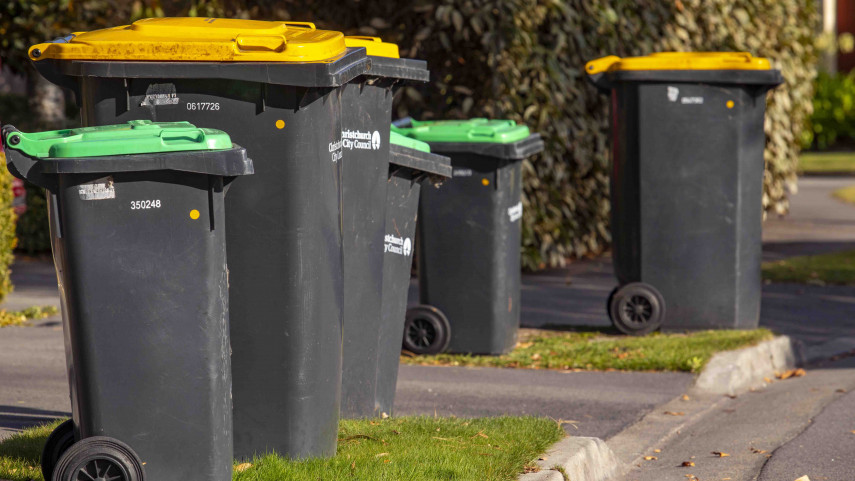
Flexible approach to kerbside collection

Share this story
Christchurch City Council will look at how it can make its three-bin kerbside collection service more flexible as part of a review into solid waste management.
The Finance and Performance Committee received a report at its meeting today outlining plans for the service delivery review of solid waste management.
The work will give priority to looking at current kerbside collection and investigating opportunities for flexibility around bin sizes and fees, as well as a separate glass collection.
Christchurch has had a successful three-bin kerbside system since 2009, which has diverted about 65 per cent of household recyclable and organic materials from landfill.
“We know every household is different so residents should be able to tailor their bin sizes to their individual needs,” Council Head of Three Waters and Waste Helen Beaumont says.
“It will also help us reduce the amount of contamination we’re getting in recycling bins.”
The review will also look at improving organics processing, funding mechanisms to support waste minimisation and further education opportunities for schools and organisations.
“We’ve been hearing from a lot of people that their green bins aren’t big enough and we are known as the Garden City, so we’ll be looking at how we can make this service better,” Ms Beaumont says.
“And we still need everyone to play their part and make sure only the right things go into each bin, which is why education will also have an important role.”
The review will tie in with the Council’s recent Waste Minimisation Management Plan, as well as taking into account the Government work programme aiming to accelerate New Zealand’s transition to a circular economy.
“Minimising waste is major part of protecting the Earth’s resources and leads to less pollution and less harm to our environment,” Ms Beaumont says.
“By reducing contamination, we will ensure we are able to recycle those products we no longer want. This, and developing strong markets for our materials, is the first step towards creating a circular economy, which, ultimately, would eliminate waste,” she says.
The first stage of the review will be completed by February 2021 to feed into the Council’s 2021-2031 Long Term Plan.
